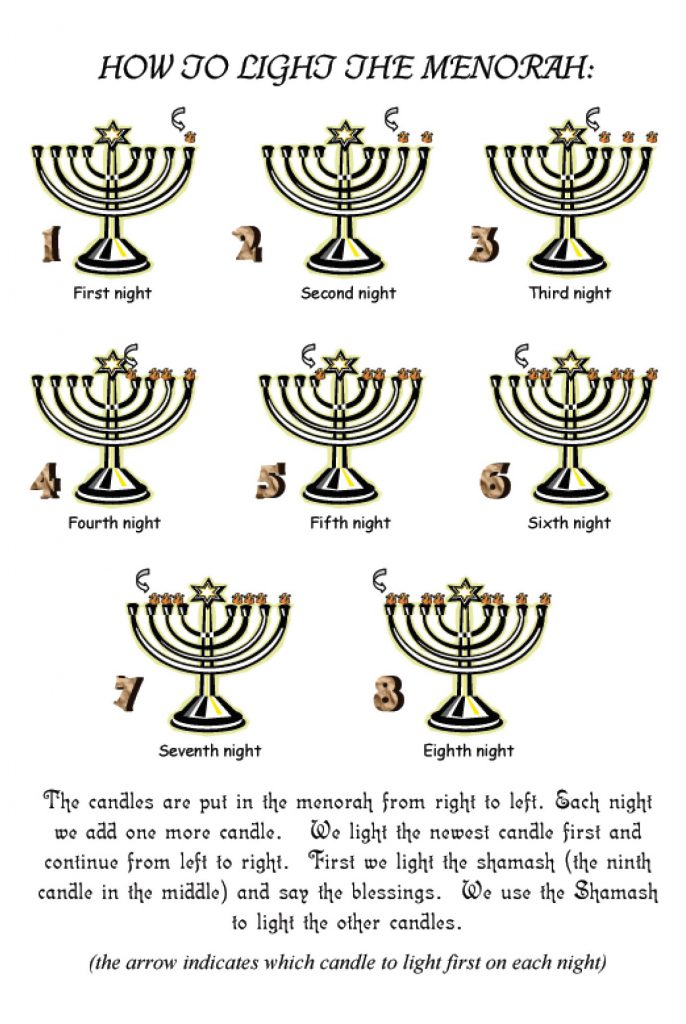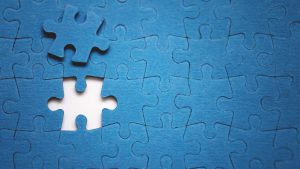An Oorah Holiday Guide
Light Up Your Chanukah!
While you’re enjoying the lights of your menorah and the delicious tastes of crispy hot latkes and jelly donuts, add something extra special to the Yom Tov – some information, insights and inspiration to make Chanukah really come to life!
Here are some things you’ll want to know – and teach your children – about this wonderful eight-day celebration.
How many nights of Chanukah are there?
Chanukah begins on the evening leading into the 25th day of the month of Kislev, and continues for 8 days. This year, 2021, Chanukah falls out on the night of Sunday, November 28, and continues through Monday, December 6.
The Story
During the Second Temple era (352 B.C.E until 70 C.E), the Seluccid branch of the Greek empire, under Antiochus, passed decrees against the Jewish people. The purpose of these decrees was not to physically destroy the Jews, but rather, to destroy their eternal bond with G-d and His Torah. Torah learning, Shabbat observance and Bris Milah (circumcision) were outlawed in order to rob the Jews of all their greatest sources of sanctity. Antiochus’ men also broke into the Temple and defiled its holiness.
Unfortunately, the tragedy of these events was lost upon many Jews. They didn’t mind being distanced from their heritage. They viewed these developments as just the natural extension of the “Hellenization” that had been going on for many years. The Greeks brought to the Land of Israel their culture and philosophy, their love of art and physical beauty. Impressed by what they saw, many Jews were drawn into the Greek lifestyle. Others were terribly distressed, but didn’t see any hope of overcoming the powerful Greek presence. A family of kohanim (priests) known as the Chashmonaim, however, had the courage and determination to fight the Greeks and defend their heritage.
This small band of men led a rebellion against the Greeks, with the goal of reclaiming the Temple and ridding Israel of the devastating decrees. In a miraculous victory of the few against the many, the Chashmonaim succeeded in their mission, and on the 25th day of the Hebrew month of Kislev, 139 BCE, they reclaimed the Temple for the Jewish people. Upon entering, they wished to relight the menorah, but there was only one small jar of pure oil, which was sealed with the High Priest’s seal. This wasn’t enough to fill the menorah with an ample amount of oil until a new supply could be obtained. The Kohanim used it to light the menorah, expecting that it would burn for only one day. Instead, it miraculously burned for eight days, long enough for a new supply of pure oil to be prepared for use.
These miracles did not immediately inspire the establishment of Chanukah. It wasn’t until a full year later, when the Hellenized Jews had absorbed the meaning of the Chashmonaim’s victory and were once again serving G-d wholeheartedly, that the Sages designated the eight days beginning on the twenty-fifth of Kislev as days of happiness and praise to G-d. They ordained that lights in every Jewish home be kindled on each of these eight nights in order to publicize the miracle of the oil. The victory of the Chashmonaim and the story of the oil were indeed wondrous. But only when the Jews turned their hearts back to the Torah was the miracle complete.
Lighting Preparation and Time
- There are various customs regarding the preferred time to kindle the Chanukah lights. Ask an Orthodox Rabbi which custom you should follow. Once that time arrives, we should light before getting involved in any other activity. Only praying Maariv, the evening prayer, takes precedence.
- Bring all the family members together to watch the lighting so that they will be reminded of the miracle.
- Put in enough oil or use candles large enough so that the lights will burn for at least one half hour.
- If you miss the preferred time, you may light any time throughout the night as long as your family is awake. If everyone is sleeping and no one will see the menorah, you should still light it, but do not recite a blessing.
- If you know you will not have the opportunity to light at the preferred time, you can light earlier. Check with an Orthodox Rabbi for the correct time. Make sure to use enough oil to keep the lights burning for a half-hour into the proper time period.
Where to Light
- The ideal place to light Chanukah candles is in an entranceway that opens out to the street so that the miracle is publicized. In Israel, many still light outdoors, using a glass or Plexiglass box to protect the menorah from wind and rain.
- Today, most people light in a window that can be seen from the street. The candles can also be lit in the doorway. If one lights in a doorway, the menorah is placed on the side opposite from where the mezuzah is affixed. (This way, a person is “surrounded by mitzvos” going in or out of his/her house.)
- The menorah should not be placed in a window so high that people cannot see it from the street.
- If one has no ideal place (as described above), he/she may light the menorah anywhere in his/her home.
How to Light
- Set the candles in a single row, all at the same height, with a space between each candle. The Shamash (an extra candle used to light the others) should not be placed in this row, so that it is not confused with the Chanukah candles.
- On the first night, light the candle on the far right. On the second night, add a candle to the left of the first one. Light the new candle first and then continue toward the right.
- On the first night, recite three blessings before lighting the menorah (See below for complete text):
- a) “L’hadlik ner shel Chanukah”
- b) “She’osoh nissim la’avoseinu…”
- c) “Shehechiyonu”
- After the first lighting, the “Shehechiyonu” blessing is not recited.
- Light the first candle after saying the blessings. You may recite or sing the song that starts with the words “Haneiros Hallolu” (found in prayer books after the blessings for lighting) while you are lighting the other candles.
- The Chanukah lights cannot be used for any purpose other than reminding us about the miracles, such as reading by their light.
- On Friday night of Chanukah, light extra long candles or fill up your oil containers with extra oil so that they can be lit before the Shabbos candles and still give light for at least a half-hour into the night.
Who Should Light?
The Sefardi custom is for the head of the household to light one menorah on behalf of the entire household.
The Ashkenazi custom is for each person to participate in the lighting.
Both men and women are obligated to participate in the mitzvoh of Chanukah lights, since both benefited from the miracle. Also, as we will discuss, a woman played a central role in the Chanukah story.
Women and Chanukah!
Women have a special stake in this holiday, because it was a woman who played a key role in defeating the Greeks. The woman, Yehudis, was the daughter of Yochanan, the High Priest. The Greek ruler admired her beauty and ordered her to come to him. She appeared as he had ordered, bringing with her delicious cheeses on which to feast. This, she knew, would make him thirsty, so that he would be willing to drink the wine she would then give him. Her plan worked. He fell into a deep, drunken sleep and Yehudis severed his head. She carried it into Jerusalem and displayed it on the city gates. The Greek army lost courage and fled.
To commemorate Yehudis’ role, women do not perform certain work during the period of time in which the candles must burn. Some people also have the custom to eat dairy foods during Chanukah in remembrance of the cheese Yehudis served.
Saying Thanks Again and Again
On Chanukah, the full Hallel (verses praising G-d) is recited every day during morning prayers. This is because Chanukah is about miracles, and miracles are about seeing with our own eyes that G-d runs the world. Although nature too is designed by G-d, when we see nature and logic turned upside-down, we suddenly feel a great surge of belief that G-d is taking care of everything.
What does that have to do with saying Hallel for eight days in a row? Think of it as a “gratitude training program.” Every time we say Hallel, we train ourselves to look all around us and appreciate what G-d does for us, not just through miracles, but through His sustaining us, our family and our world, every minute of the day. After eight days of Hallel, we’re pros. We have a new perspective that can help us carry into the rest of the year the wonder and gratitude that define a Jew’s relationship with G-d.
The Horn of the Ox
The Midrash Rabba teaches that Antiochus issued a decree to the Jews stating: “Write on the horn of an ox that you have no part in the G-d of Israel.” This decree seems to be a mystery. Why the horn of an ox? The mystery can be solved by studying ancient Greek artifacts. Among them one may find a large animal horn, which is hollowed out and punctured at the narrow end. It was used as a baby bottle. By ordering that this message be engraved on baby bottles, the Greeks were attempting to nurse Jewish babies on rejection of their heritage. Right from the beginning, before they could even speak, that message was ordained to enter their consciousness.
But we can learn something from the Greek strategy, too. Just as children can be influenced away from G-d and his Torah right from the cradle, so can they be brought close. Everything
they see and hear enters their souls and helps carve the path their lives will take.
Adapted from “There Shall Be Light,” Targum Press
The Blessings on the Lights
First blessing:
בָּרוּךְ אַתָּה אֲדֹנָי אֱלֹהֵינוּ מֶלֶךְ הָעוֹלָם אֲשֶׁר קִדְּשָׁנוּ בְּמִצְוֹתָיו וְצִוָּנוּ לְהַדְלִיק נֵר חֲנֻכָּה
Ba-ruch A-tah Ado-nai E-lo-he-nu Me-lech ha-olam a-sher ki-de-sha-nu be-mitz-vo-tav ve-tzi-va-nu le-had-lik ner Cha-nu-kah.
Blessed are You, Lord our G‑d, King of the universe, who has sanctified us with His commandments, and commanded us to kindle the Chanukah light.
Second blessing:
בָּרוּךְ אַתָּה אֲדֹנָי אֱלֹהֵינוּ מֶלֶךְ הָעוֹלָם שֶׁעָשָׂה נִסִּים לַאֲבוֹתֵינוּ בַּיָּמִים הָהֵם בִּזְּמַן הַזֶּה
Ba-ruch A-tah Ado-nai E-lo-he-nu Me-lech Ha-olam she-a-sa ni-sim la-avo-te-nu ba-ya-mim ha-hem bi-zman ha-zeh.
Blessed are You, Lord our G‑d, King of the universe, who performed miracles for our forefathers in those days, at this time.
Third blessing, recited only on the first night (or the first time lighting this Chanukah):
בָּרוּךְ אַתָּה אֲדֹנָי אֱלֹהֵינוּ מֶלֶךְ הָעוֹלָם שֶׁהֶחֱיָנוּ וְקִיְּמָנוּ וְהִגִּיעָנוּ לִזְּמַן הַזֶּה
Ba-ruch A-tah Ado-nai E-lo-he-nu Me-lech Ha-olam she-heche-ya-nu ve-ki-yi-ma-nu ve-higi-a-nu liz-man ha-zeh.
Blessed are You, Lord our G‑d, King of the universe, who has granted us life, sustained us, and enabled us to reach this occasion.




Benjamin Kropsky
says:This is a good resource for understanding and celebrating Chanukah.
Joan Roth
says:Thank you so much for all of the important, useful and valuable information I received today. Oorah is such a wonderful organization. I am so fortunate to be a participant in TorahMates. Throughout several years of learning, I have been so grateful to the women who have given their time to study with me!